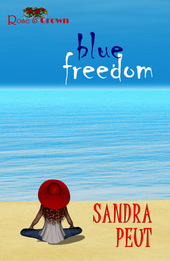 In recent years there’s been much advice on the use of speech tags in writing. If I picked two key points from the current standard, they would be:
In recent years there’s been much advice on the use of speech tags in writing. If I picked two key points from the current standard, they would be:
1) Eliminate speech tags in preference of action beats wherever possible.
2) Use simple ‘he said’ or ‘she said’ instead of other tags like ‘retorted’, ‘teased’ or ‘simpered’.
I’ve applied this advice to my own writing, appreciating the improved flow and consistent pace conferred by not constantly bumping over ‘said’, ‘bawled’ or ‘snapped’. That said (pardon the pun …), I sometimes find myself including an action beat because it’s the ‘appropriate’ thing to do. Laziness? Weariness? Maybe just, ‘I’ve been at this for hours and just really want to finish this scene!’ All I know is token beats can really drain the life out of a scene (and characters) and make them feel flat and contrived. Clearly this is something to be mindful of, but I’m a ‘show me’ kind of person. I like to see examples of what works in order to apply it in my own writing. (You know that whole ‘writers should be readers’ thing? 😉 ) And I’ve stumbled across a gem.
Presently I’m listening to the audio recording of Jasper Jones by Australian author Craig Silvey. (Who says you can’t read and drive at the same time?) The language is coarse in places, although not gratuitous given the context. I suppose hearing it rather than being able to gloss over profanities with my eyes is more confronting, and although only a short way into the story, already I’ve sensed a sad, empty perspective of spirituality beyond anything but self in the characters. Yet the writing is brilliant. I’ve been drawn in, my imagination filled with carefully crocheted words that form an intricately textured blanket in my mind.
But while listening yesterday it struck me. He said? She said? I’m not far into the story, but I couldn’t say I’d noticed many. Was I so engrossed in the scenes that I missed them?
As I couldn’t flip back pages to prove it, today I got my hands on a printed copy – and there are some. A tag here and there, bunched in other places. Never overdone. Still, what really grabbed my attention was not a single action beat merely filled space. It all blended as part of the scene, sketching characters and emotions in three dimensions, and bringing settings to life like a seamless cloth. Two short examples from the first chapter:
p. 2
He takes a step towards me. I take one back.
‘Okay. Are you ready?’
‘What? Ready for what?’
‘I tole you. I need your help, Charlie. Come on.’ His eyes are darting, his weight presses back.p. 10
‘I’m sorry, Charlie. I’m sorry about this, mate. I dunno what to do.’
I am hugging my elbows. I turn to Jasper Jones.
‘Why would you bring me here? I shouldn’t be here. I have to go back home. You have to tell someone about this.’
‘Wait. Charlie, not yet, mate. Not yet.’ It’s firm plea. We fall silent.
There is much I can learn from this master wordsmith, and many others. As I’m turning my attention to editing once again, this is a timely reminder of the importance of constantly challenging my writing craft through exposure to more skilful authors. How about you? Are there stories that have opened your eyes to a better way of writing? I’d love to hear about your experiences.




